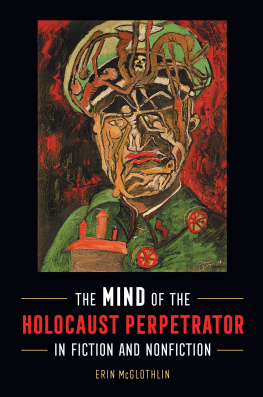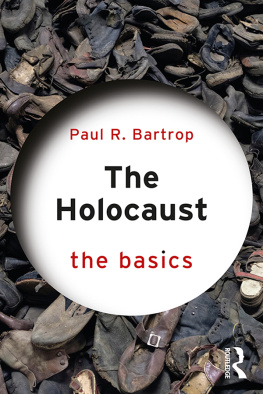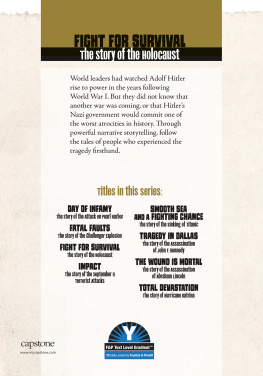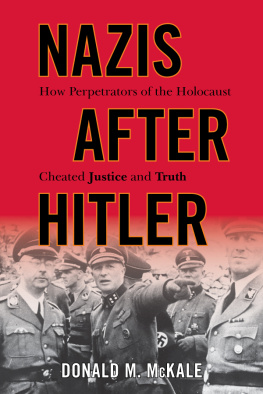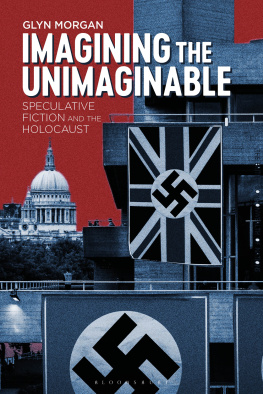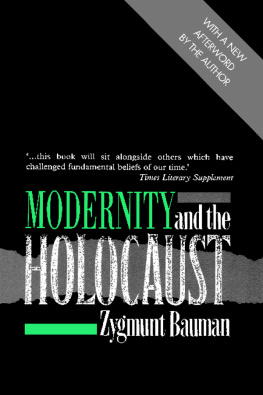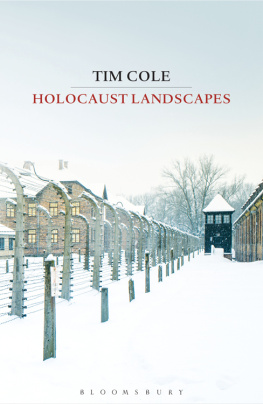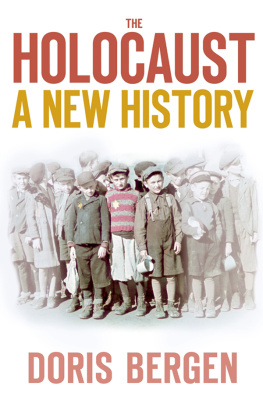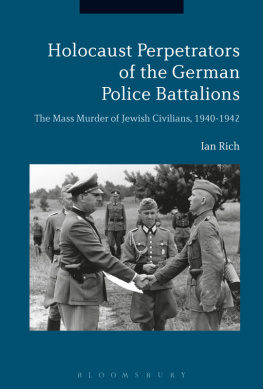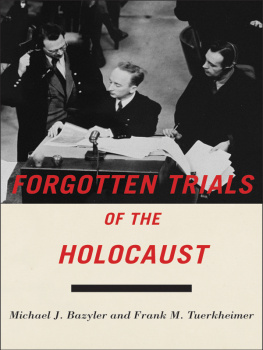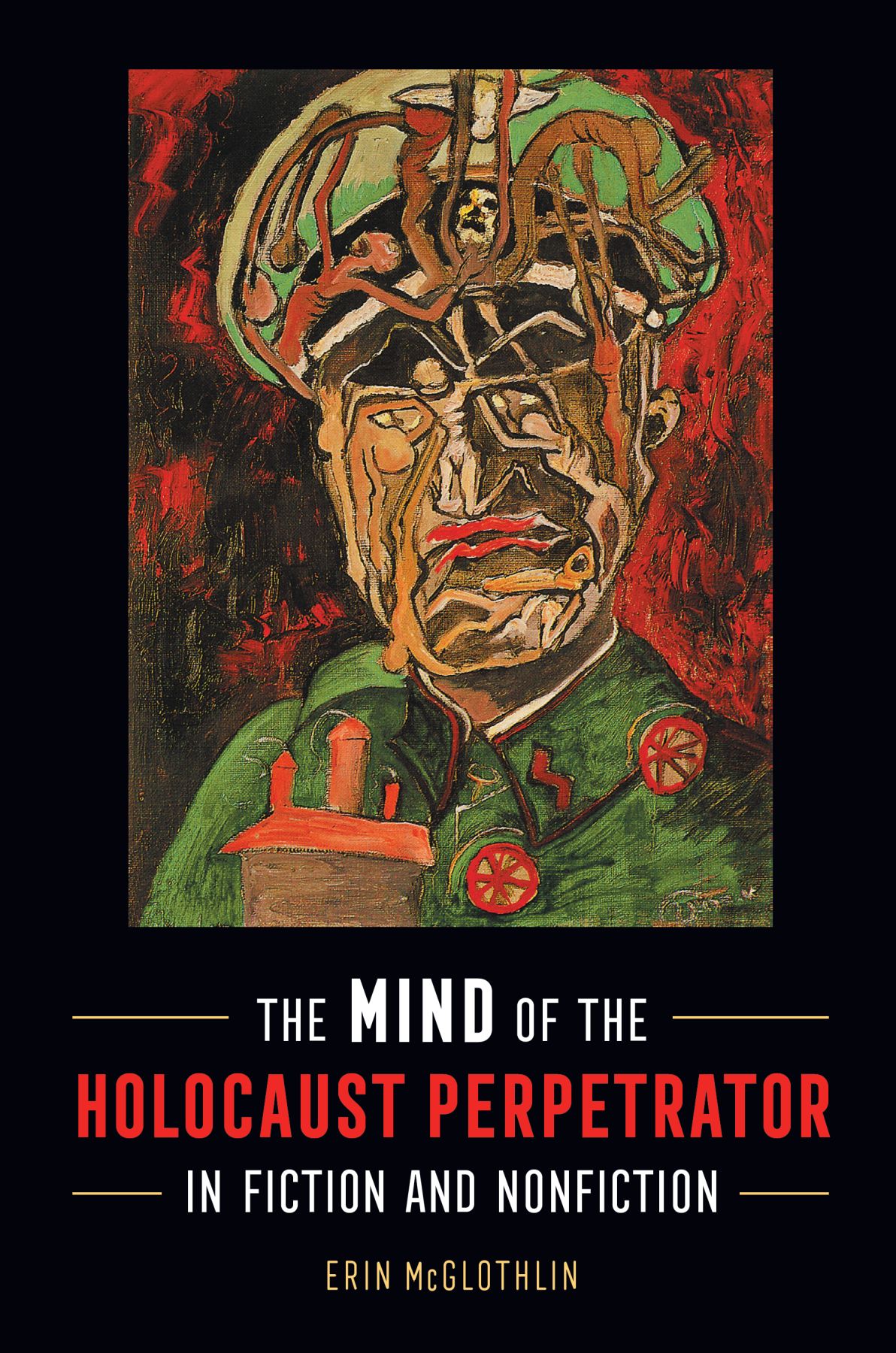
Praise for The Mind of the Holocaust Perpetrator in Fiction and Nonfiction
Erin McGlothlins extraordinary study not only offers sharply insightful readings of journalistic accounts and novels that seek to depict the inner lives of Nazi perpetrators but also presents a most compelling methodology for analyzing such depictions of the perpetrator in works of literary fiction, investigative journalism, and other textual modes. This wonderfully lucid, fiercely intelligent, and beautifully written book is must-reading for anyone studying the representation of the Holocaust or engaging with efforts to understand and portray the mindsets of perpetrators of historical atrocities.
Gary Weissman, author of Fantasies of Witnessing: Postwar Efforts to Experience the Holocaust
In this extremely innovative and important study, McGlothlin poses crucial new questions about the ways in which fiction and nonfiction texts depict the inner worlds of Holocaust perpetrators. Her careful analysis reveals how these texts give us the impression of reading the minds of agents of extreme violence, while at the same time narrative filtering strategies establish a crucial distance, to prompt our ethical reflection on the Holocausts legacy.
Sue Vice, professor of English Literature, University of Sheffield, UK
McGlothlin offers sophisticated, nuanced, and cogent interventions into scholarly conversations about (a) how to come to terms with the Holocaust; (b) narrative ethics, empathy, identification, and mind-reading; and (c) the relations between fiction and nonfiction. A must-read for anyone involvedor at all interestedin these vital conversations.
James Phelan, coeditor of After Testimony: The Ethics and Aesthetics of Holocaust Narrative for the Future
In this much-anticipated work, McGlothlin draws on her considerable knowledge of narrative theory to offer the most substantial and sustained exploration of the literature of perpetration in English to date. Expertly bringing together fictional and nonfictional representations of Nazi perpetrators, McGlothlin takes us through an ethical minefield with nuance and sensitivity. The careful work of reading undertaken here is itself a strong argument for the value of literary studies in confronting some of the most significant and troubling areas of human history and culture.
Michael Rothberg, author of The Implicated Subject: Beyond Victims and Perpetrators
Erin McGlothlins book is a rigorous and insightful study of the complex dynamics of representing the mind of the Holocaust perpetrator in both fiction and nonfiction. It displays a rare combination of a sense of history and a talent for nuanced narrative analysis.
Hanna Meretoja, professor of comparative literature, University of Turku
The Mind of the Holocaust Perpetrator in Fiction and Nonfiction
The Mind of the Holocaust Perpetrator in Fiction and Nonfiction
Erin McGlothlin

Wayne State University Press
Detroit
2021 by Wayne State University Press, Detroit, Michigan 48201. All rights reserved. No part of this book may be reproduced without formal permission.
ISBN 978-0-8143-4834-5 (paperback); ISBN 978-0-8143-4614-3 (hardback); ISBN 978-0-8143-4615-0 (ebook)
Library of Congress Control Number: 2020945975
Wayne State University Press
Leonard N. Simons Building
4809 Woodward Avenue
Detroit, Michigan 48201-1309
Visit us online at wsupress.wayne.edu
Cover art by Czechoslovak-Jewish Holocaust survivor Adolf Frankl, who shares this statement: Through my work I have created a memorial for all nations of the world. No one, regardless of religion, origin or political conviction, should ever again suffer suchor similaratrocities. Please see www.adolf-frankl.com. Artwork 2020 Artists Rights Society (ARS), New York / VG Bild-Kunst, Bonn.
In memory of my mother, Velma Ruth Weiser McGlothlin (19302019), at whose bedside I sat as I was writing the last pages of this book. Her boundless love, wisdom, and good humor are among the greatest gifts I have had the fortune to receive.
Contents
I am indebted to several units at Washington University in St. Louis (WU) for their support of this book. The Department of Germanic Languages and Literatures and the Dean of Arts and Sciences provided the necessary financial resources and time to develop and complete this project, while the WU Center for the Humanities offered additional assistance in the form of a Mid-Career Faculty Fellowship. I feel fortunate to work at an institution that values my research.
I am grateful to my departmental colleaguesin particular, my erstwhile chair, Matt Erlinfor their unflagging encouragement at all stages of my research, but above all in the final months. A number of other individuals offered significant logistical support, including WU former subject librarian Brian Vetruba, who kept ten paces ahead of me in the search for relevant materials; Barb Liebmann and Cecily Hawksworth, whose superb administrative skills helped keep me on track; Corey Twitchell, Brooke Shafar, and Amy Braun, who provided first-rate research assistance during their time as graduate students at WU; and Phyllis Lassner and Elizabeth Baer, who were instrumental in moving the book toward publication. I am very appreciative of their efforts. Id also like to acknowledge Mitch Reyes, who gave helpful feedback on my book prospectus, and Jim Phelan, who helped me develop my arguments about narrative empathy. Additionally, I would like to thank the participants of the WU Reading Group in Cognitive Narrative Theory, the WU Faculty Seminar on Memory and Violence, the WU Summer Faculty Writing Retreat, the GSA Seminar on Affect and Cognition in Holocaust Culture, and the ACLA Seminar on Perpetration in Contemporary Representations of the Holocaust, all of whom helped me to refine my ideas. Their general esprit de corpsalong with the support and encouragement of my undergraduate and graduate studentsinspired me to complete this project. Further, I offer my most heartfelt thanks to my trusted colleagues near and far, including Jennifer Kapczynski, Michael Richardson, Susanne Vees-Gulani, Anika Walke, Cathy Keane, Stephanie Kirk, Gerd Bayer, Hanna Meretoja, Gary Weissman, Katja Garloff, and Ervin Malakaj. I am very appreciative of their intellectual generosity, unremitting collegiality, and good cheer. In particular, I am grateful to Brad Prager, to whom I continually turn for advice and feedback and who unfailingly guides me each time in the right direction.
To Daniel Magilow and Agnes Mueller, I offer heartfelt thanks for their incisive review of the manuscript and helpful suggestions for improving it. I would also like to recognize the efforts of the first-rate staff at Wayne State University Press, including Annie Martin, Kathy Wildfong, Marie Sweetman, Emily Nowak, Kristin Harpster, and Kristina Stonehill. We in the humanities are fortunate to have such a committed team behind our efforts. I further would like to express my appreciation to Anne Taylor, who brought excellent editing skills to bear on the manuscript, and Anna-Rebecca Nowicki and Walter Grnzweig, who were helpful in procuring the cover image.
For their love and support, I wish to thank my family: my brother, Drew; my sister, Cara, my brother-in-law, John, and my dear niece, Abi; my stepson Ben and his fiance, Samantha; my stepson Dylan and his girlfriend Carly; and my parents-in-law, Roberta and Larry. To my beloved husband, Mark, I offer my deepest gratitude for his generous encouragement, his assiduous lightheartedness, and his abiding love.
Next page
